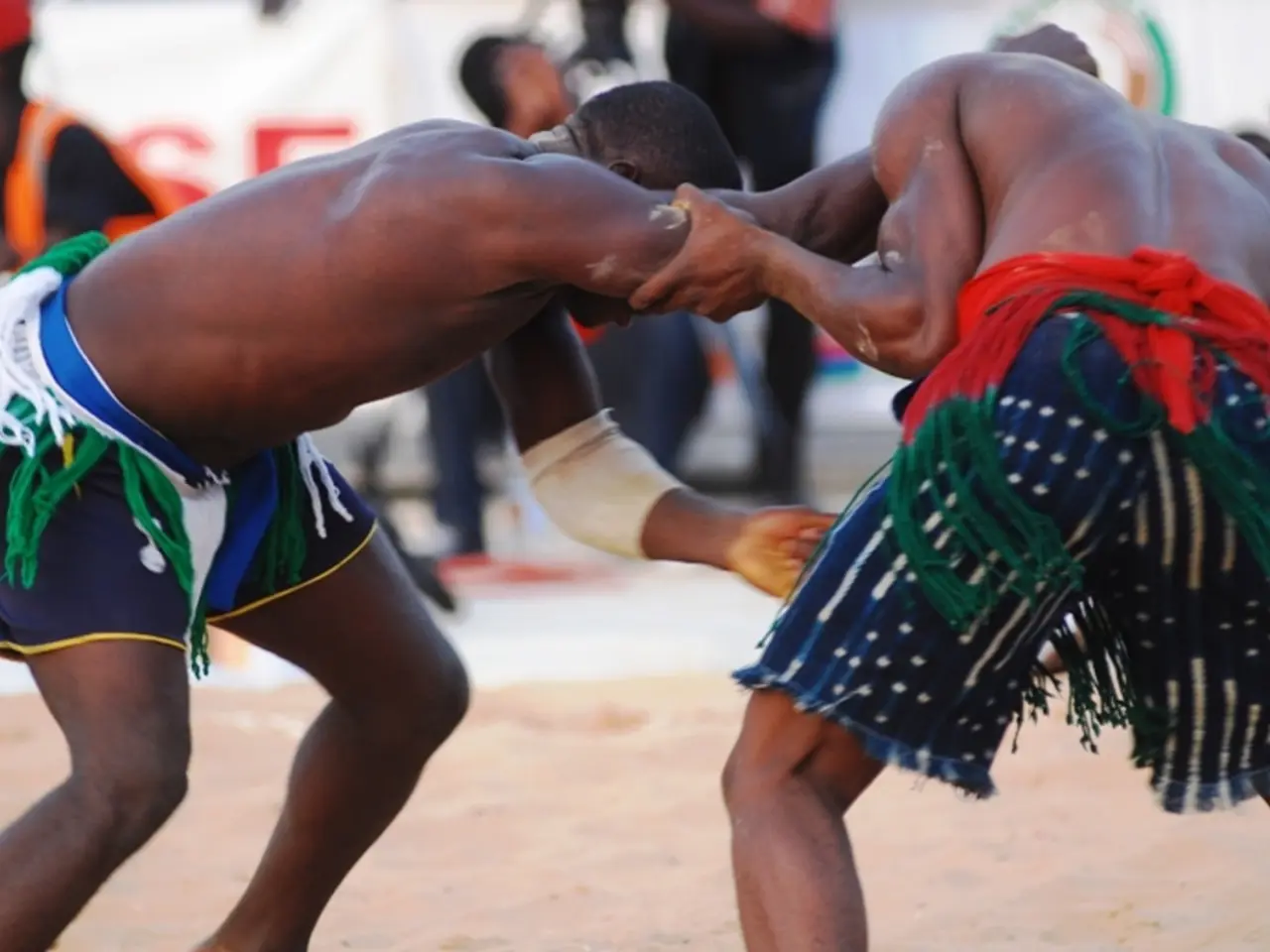South Korea's former president resisting legal authority stirs concerns, as demonstrated by Yoon's lack of cooperation
In a dramatic turn of events, former South Korean President Yoon Suk-yeol is currently under martial law at the Seoul Detention Center, facing charges including obstruction of special official duties and abuse of power, related to an alleged martial law conspiracy. Since his arrest on July 10, 2025, Yoon has repeatedly refused to appear for questioning by the special counsel investigating the case, despite several summons and transfer orders to bring him to the Seoul High Prosecutors' Office for interrogation.
The ongoing standoff between Yoon and the authorities has caused controversy due to Yoon's former presidential status. Three separate attempts have been made this week to transfer Yoon to the Seoul High Prosecutors' Office, but each time, Yoon has refused to cooperate. Prison authorities cannot use force to remove Yoon from his cell due to his former presidential status, a decision that could potentially obstruct ongoing investigations against him.
The special counsel, led by Cho Eun-suk, has issued multiple instructions to transfer Yoon from detention to their office at the Seoul High Prosecutors’ Office. However, Yoon has consistently declined to comply, citing health issues such as diabetes, although detention center authorities have stated there are no medical grounds preventing his attendance.
The refusals to cooperate have led the special counsel team to consider disciplinary measures against the Seoul Detention Center for non-cooperation and to summon relevant correction officers as witnesses. Yoon’s legal team argues that the special counsel is aiming to humiliate the former president rather than conduct a reasonable investigation. They request that Yoon be questioned where he is detained instead of forcing an in-person transfer.
Assistant Special Prosecutor Park Ji-young states that Yoon's behavior is undermining public trust in the rule of law. The situation raises questions about the accountability of former presidents in South Korea and could have significant implications for the rule of law and political stability in the country.
The special counsel emphasizes the importance of Yoon’s cooperation to uphold the principle of equality before the law, which he had previously supported as prosecutor general. His refusal to appear for questioning is seen as evasive and undermining public trust in the legal system.
In summary, the current status is that Yoon remains in detention but refuses to be transferred for questioning. The repeated attempts to transfer him stem from the special counsel’s need to interrogate him in person to pursue the investigation thoroughly, while Yoon’s team resists forcible transfer on grounds of dignity, health, and precedent. The ongoing standoff between Yoon and the authorities could escalate tensions in South Korea, with potential implications for the rule of law and political stability in the country.
The standoff between Yoon and the authorities, primarily the special counsel, is escalating due to Yoon's refusal to be transferred for questioning, citing health issues and a need for preservation of dignity. This situation raises concerns about the accountability of former presidents under health policy-and-legislation and could impact the rule of law and political stability in general-news. The special counsel’s insistence on Yoon’s cooperation is crucial, as it upholds the principle of equality before the law, a principle Yoon previously supported as prosecutor general, and is seen as essential for maintaining public trust in the legal system.








